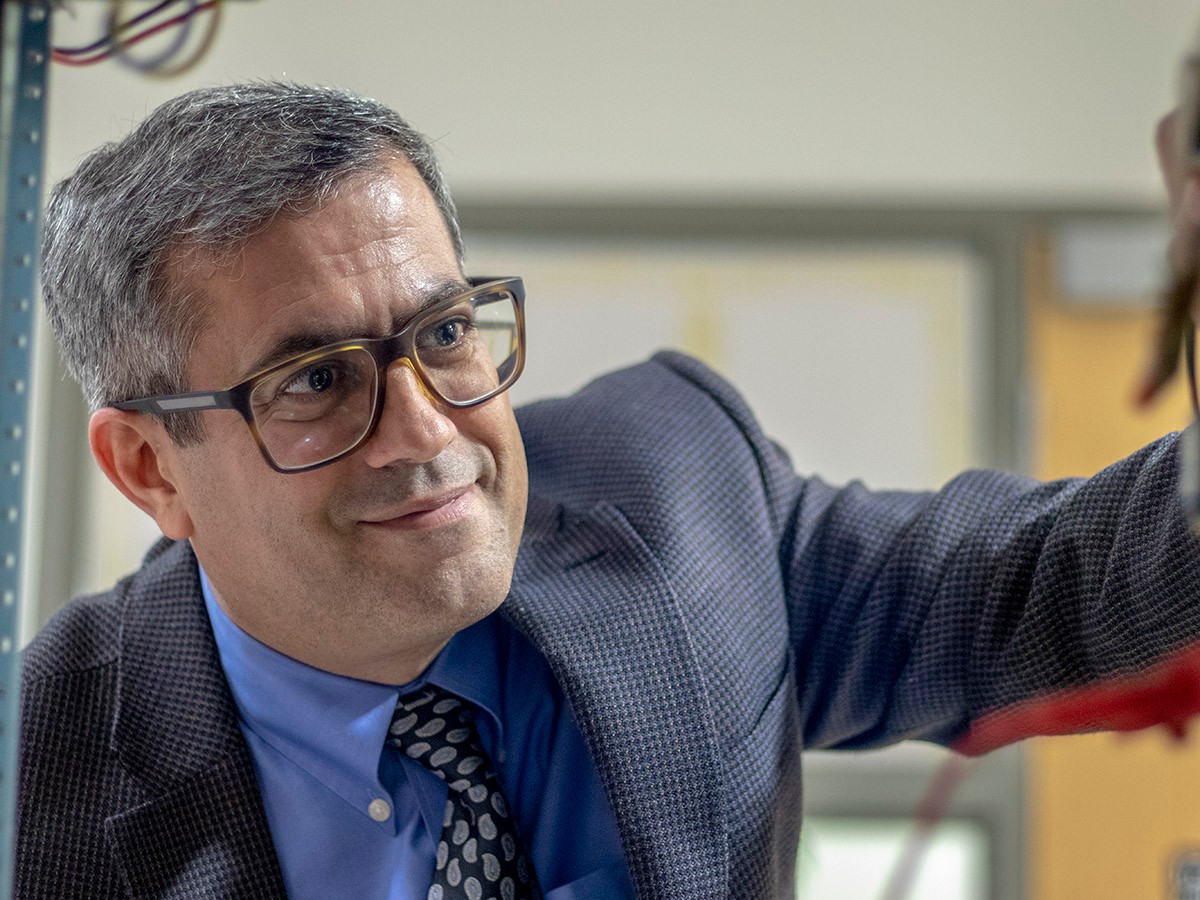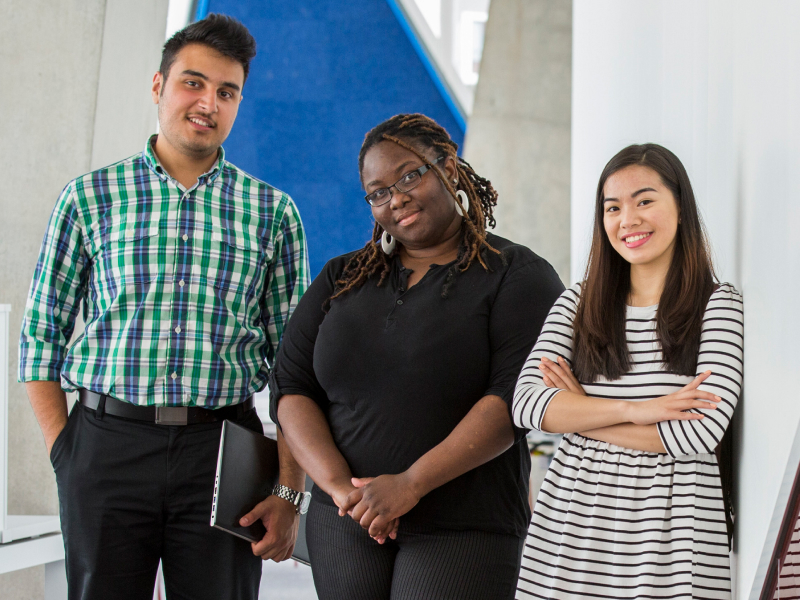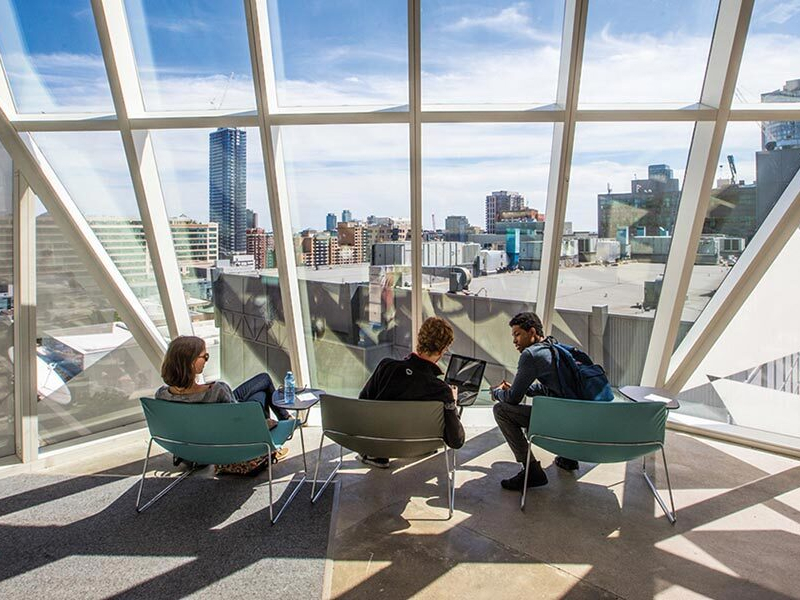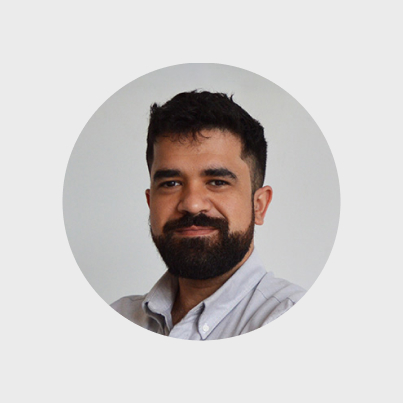Biomedical Engineering Undergraduate Degree Program
FEAS > Programs > Undergraduate > Biomedical Engineering
What makes this program different?
Dive into a world where cutting-edge engineering meets life-saving innovations in one of Canada’s first and longest-running biomedical undergraduate programs. With top-tier professors and collaborations in surrounding world-class hospitals, you’ll be at the forefront of healthcare advancements.
Degree
Bachelor of Engineering (BEng)
Department
Electrical, Computer, and Biomedical Engineering
Accreditation
Canadian Engineering Accreditation Board (external link, opens in new window)
Options
FT 4yrs, Co-op 5 yrs, optional specializations
Paid experience with industry partners
Students learn at the forefront of healthcare advancements gaining hands-on experience alongside top-tier professors and collaborations in world-class hospitals.
Learn more about the paid co-op program.
State-of-the art facilities
Students have access to cutting-edge laboratories and research facilities to explore their own passions, contribute to revolutionary research, and practice what they’ve learned in the classroom.
Learn about our labs.
#1 in Ontario for dedicated & personalized student support
The First- Year Engineering Office (FYEO) caters to all first year academic and administrative needs, ensuring a successful transition from high school student to thriving future engineer! First year students also benefit from first year intervention and transition programs that help students maintain and upgrade their academic standing.
Funding for your studies & business ideasExplore scholarships, awards, income opportunities, and financial assistance options to finance your studies. |

Explore your journey
The co-operative (co-op) & internship program offers engineering students 8, 12 & 16 months of paid, full-time on-the-job experience, to develop skills, build professional connections and gain confidence in their chosen discipline.
The Optional Specialization in Management Sciences (OSMS) focuses on engineering and operations management, operations research, finance and organizational behaviour and prepares students for engineering leadership.
The Accelerated Masters of Applied Science Pathway helps research-minded students, who have a minimum CGPA of A-, earn a Master of Applied Sciences up to one year earlier.
A Professional Engineer (P.Eng) License (external link) is a professional designation for engineering graduates through Professional Engineers Ontario (PEO). Graduates can choose to pursue this license, subject to PEO requirements, because our program is accredited.
The first year transition program is designed to help students who may be struggling with the pace of university learning, have missed credits, or need to improve their academic standing. This program ensures that students have the tools and guidance they need to succeed and remain on track in their studies.
In first year, you’ll learn engineering fundamentals, like calculus, physics and electric circuits. In the second and third years, you’ll study topics such as digital systems, biomechanics, biomaterials, bioinformatics, fluid mechanics, control systems and bio-robotics, and anatomy.
In the fourth year, in addition to advanced courses such as tissue engineering, radiation therapy, human-computer interaction and biomedical systems modelling, you’ll address a real-world challenge through a team capstone design project and present your solution to peers and experts
You’ll also have the opportunity to gain valuable industry experience through our popular co-operative internship program, and to build a working prototype through our esteemed fourth-year design project.
Between coursework and practical experience, our bachelor of engineering in biomedical engineering will give you the skills you need to embark on a rewarding career dedicated to improving patient outcomes and quality of life.

Biomedical engineers have been at the forefront of the technological advancements in healthcare and assisting the medical community. Being one of the first undergraduate biomedical engineering programs in Canada, and geographically benefitting from the surrounding world-class research-intensive hospitals, the program is continuing to produce high-caliber biomedical engineers and leaders of tomorrow. With the new and emerging challenges we face with an aging population and the ever-increasing need for promoting the well-being of society, become a part of the drive through a solid curriculum in the early years, a great variety of elective specialized courses in the fourth year, well-equipped multi-disciplinary labs, student clubs, and an optional co-op/internship program.

Get involved!
Engineering students deepen their applied knowledge of mechanical engineering and meet new people by participating in design teams, competitions and student groups, including:
- Biomedical Engineering Course Union (BECU) (external link, opens in new window)
- EngOut (external link, opens in new window)
- National Society of Black Engineers (external link, opens in new window)
- Tetra TMU (external link, opens in new window)
- Women in Engineering (WiE) (external link, opens in new window)

Get help!
Program-specific, career development, personal counselling and more, TMU is #1 in Ontario for providing support throughout your student journey.

Clusters & zones
Students and faculty tackle real-world problems through our four zones and six centres by joining forces with leading organizations, from industry and hospitals to community and government. Our students receive one-on-one mentorship from multidisciplinary experts, and use state-of-the-art technologies that ignite and nurture their start-ups from the ground up.

What does a biomedical engineering graduate do?
Career possibilities
Biomedical engineering graduates become leaders in this in-demand field, equipped with the technical skills and solutions-oriented experience needed to launch careers in creating implantable and wearable devices, developing biomaterials, medical imaging and advancing pharmacology. With skills in physical, chemical, mathematical and computational sciences, students secure a variety of technical and leadership roles as clinical engineers, manufacturing engineers, medical device designers and medical researchers. Some also pursue teaching at medical institutions or further graduate studies.
Possible employers:
TMU’s biomedical engineering graduates work for a variety of leading companies including:
- GE
- Johnson & Johnson
- Medtronic
- Philips
- Siemens
- The Hospital for Sick Children
- Toshiba
- Unity Health Toronto
- + More

Faranak Dayyani
Consultant, Miipe Quality Solutions
“The co-operative internship program was a smart step in my career because it allowed me to develop valuable analytical and technical skills while gaining professional experience that has helped me better understand where I want to go in my career.”
Biomedical Engineering ’20

Andrew Marques
Application Scientist – Light Matter Interaction
“Toronto Metropolitan University is a fantastic environment – for not only its incredible facilities and professors but also its research diversity. Biomedical engineering is highly multidisciplinary, and Toronto Metropolitan University is home to experts across multiple fields.”
Biomedical Engineering (BEng) ’16
$10M for entrance scholarships
We offer more than $10M in academic-based entrance scholarships.
$9k for current students
We also offer more than $9k in biomedical engineering-specific awards. Look for one of our eight awards on the university’s scholarships and awards platform. (external link)
Earn income & develop career-related skills
Undergraduate research assistantships are available for third year students with a CGPA of 3.0 or more.
The Career Boost program provides jobs to eligible full-time undergraduate students.
Get financial assistance
Get info on government financial aid programs such as OSAP, out-of-province student loans, and U.S. student loans.








